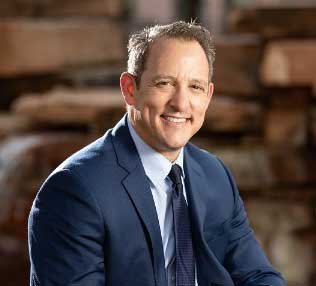Back surgery is a large undertaking that comes with a significant amount of risk and recovery time, even when the surgery goes according to plan. However, back surgery does fail at times. It fails enough that there is an actual term in the medical community for it, “failed back surgery.” Back surgery is done for a variety of reasons, from lower back pain to issues with the legs or other parts of the body. However, the spine is a very tricky part of the body to operate on, and operations do not always go according to plan. Fortunately, for patients who have experienced failed back surgery, there is still hope.
Failed back surgery occurs when a patient still feels pain after the back surgery has been completed. Unfortunately, pain after back surgery is a relatively common occurrence. Most people notice back pain and think surgery will be able to fix their problems. Unfortunately, back pain is not as simple as cutting it out with surgery. Spinal surgery can help with pain when it is used to decompress a nerve or to stabilize an unstable joint. However, operating just because a person is experiencing back pain is not always the answer.

Unfortunately, many people do undergo surgery simply because they feel pain. These cases often end in failed back surgery. While the pain may be slightly less than before the surgery, in some cases, there are other cases where the pain can be equally bad if not worse than before surgery. Patients who have failed back surgery may experience stiffness, muscle weakness, loss of bowel or bladder control, loss of range of motion, muscle spasms, and scar tissue.
The treatments for failed back surgery are not always effective. The first line of defense for pain after failed back surgery is typically prescription opioids. While these may work initially, they tend to lose effectiveness long term as the body becomes accustomed and then reliant on them. In addition, the risk of addiction to opioids is high. This is the reason back surgery has been a big contributor to the opioid crisis. Physical therapy is another potential option. However, many patients who are undergoing back surgery have already tried physical therapy without it being helpful. While physical therapy may provide some relief, it is unlikely to eliminate all pain. Repeat surgeries are another form of treatment. However, as many patients learn the first time, surgery is not guaranteed to fix the pain.
Failed back surgery is a difficult diagnosis to come to terms with. Fortunately, as medicine has continued to advance, regenerative medicine has shown to be effective in helping those suffering from failed back surgery. Regenerative therapy can help generate new tissue to grow in the spinal region, thus reducing the number of pain patients may be feeling due to old age and normal degeneration of the body. Many people feel hopeless after being diagnosed with failed back surgery. However, the development of regenerative medicine means there is still hope for those patients who are still experiencing pain post-surgery.


No Comments